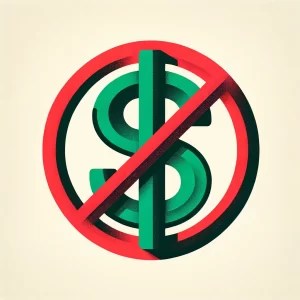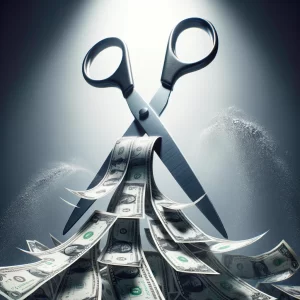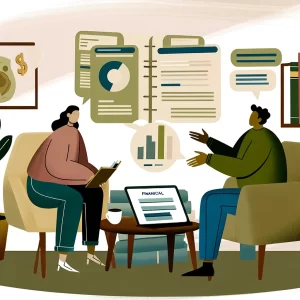In a world where financial freedom is the ultimate goal for many, the path to achieving it can seem daunting, especially when saddled with debt. The journey to financial independence requires more than just traditional budgeting and saving; it calls for innovative strategies that can accelerate your progress. This article unveils eight unconventional tips that can help you break free from the chains of debt and embark on a faster route to financial independence, leveraging current trends and insights to maximize your financial potential.
1. Embrace the Gig Economy
The gig economy isn’t just for side hustles anymore; it can be a powerful tool in fast-tracking debt repayment. Diversify your income streams by tapping into your skills and interests—whether it’s freelance writing, graphic design, or ride-sharing. Each extra dollar earned can be directed towards your debt, significantly reducing your repayment timeline. The flexibility of gig work allows you to adjust your efforts based on your financial goals, making it a relevant and adaptive strategy in today’s ever-changing job market.
2. Leverage Micro-Investing Apps
In the age of technology, investing has never been more accessible. Micro-investing apps allow you to invest small amounts of money, often just spare change from daily purchases, into diversified portfolios. While it might seem counterintuitive to invest when in debt, the compounding returns can provide an additional income stream. This approach not only helps in debt repayment but also inculcates the habit of investing, laying a solid foundation for future financial independence.
3. Utilize Debt Consolidation Wisely
Debt consolidation, when used strategically, can be a game-changer in your debt repayment journey. By consolidating multiple high-interest credit cards or loans into a single debt consolidation loan with a lower interest rate, you can reduce your monthly payments, as well as limit the total interest paid over time. This method requires thorough research and consideration of your financial situation to ensure it’s a beneficial move. Remember, the goal is to use consolidation as a tool for faster debt repayment, not as an excuse to accrue more debt.
4. Adopt a Minimalist Lifestyle
Minimalism is more than a trend; it’s a lifestyle choice that can significantly impact your financial health. By focusing on what you truly need, you can reduce unnecessary spending, freeing up more funds for debt repayment. This approach not only accelerates your journey to becoming debt-free but also cultivates a sense of contentment and simplicity that is invaluable on the path to financial independence.
5. Implement a ‘No-Spend’ Challenge
Challenge yourself and your household to a ‘no-spend’ month, where you only spend money on absolute necessities. This drastic measure can highlight areas of frivolous spending and help reset your financial habits. The money saved during this period can provide a substantial boost to your debt repayment efforts, proving that temporary sacrifices can lead to long-term gains.
6. Take Advantage of Balance Transfer Offers
Credit card balance transfer offers, particularly those with 0% introductory APR, can provide a temporary reprieve from high-interest rates. Transferring your debt to such a card can halt the growth of interest, allowing you to focus on the principal amount. Be mindful of transfer fees and the promotional period’s end date to maximize this strategy’s benefits.
7. Explore Employer-Sponsored Debt Repayment Programs
With the growing recognition of financial wellness as a component of overall well-being, more employers are offering debt repayment programs as part of their benefits package. These programs can include matching contributions to loan payments or direct financial assistance. Investigate whether your employer provides such benefits and take full advantage of them to accelerate your debt repayment.
8. Optimize Your Tax Refund
Instead of viewing your tax refund as a windfall for discretionary spending, allocate it towards your debt. This lump sum payment can significantly reduce your principal balance, shortening your debt repayment timeline. Additionally, review your tax withholdings to ensure you’re not overpaying taxes throughout the year; the extra funds in your paycheck can be directed towards debt reduction, making your repayment efforts more consistent.
Ditch the Debt and Start Toward Financial Independence
Achieving financial independence is a journey that requires creativity, discipline, and a willingness to explore unconventional paths. By incorporating these innovative strategies into your financial plan, you can expedite your escape from debt and pave the way to a secure and independent financial future. Remember, the most crucial step is to start, and with these tips, you’re equipped to tackle your debt in ways you never thought possible.
Catherine is a tech-savvy writer who has focused on the personal finance space for more than eight years. She has a Bachelor’s in Information Technology and enjoys showcasing how tech can simplify everyday personal finance tasks like budgeting, spending tracking, and planning for the future. Additionally, she’s explored the ins and outs of the world of side hustles and loves to share what she’s learned along the way. When she’s not working, you can find her relaxing at home in the Pacific Northwest with her two cats or enjoying a cup of coffee at her neighborhood cafe.

























